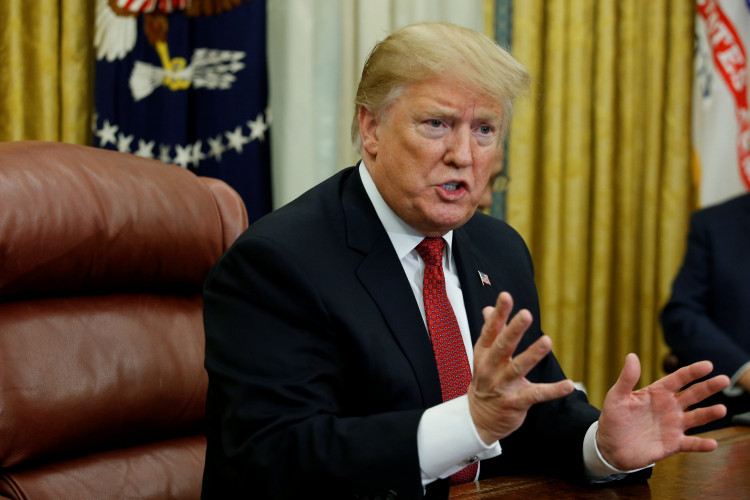On Tuesday, the United States and Chinese officials resumed the high-stakes trade negotiations in an aim to end the tariff war between two of the world's largest economies. President Donald Trump released a statement on Tuesday that trade talks with China are complex but are "going very well" and he might extend the March 1 deadline for imposing additional tariffs.
Trump said that he might extend the March 1 truce deadline to reach an agreement after the third round of talks that ended on Friday in China. The United States plans to increase the tariffs on US$200 billion imported Chinese goods to more than double. The United States Presidents' comment gave high hopes for investors which resulted in higher United States stock prices. Both sides are hopeful that they can avoid the worsening of the conflict. It also affected the markets of other nations positively including trade in London, Frankfurt, and Tokyo.
On Thursday and Friday, another round of talks is scheduled between senior officials of the two sides. Trump announced on Friday that he might be willing to hold off on increasing tariffs to 20 percent from 10 percent on March 1on US$200 billion in Chinese goods if the two sides were near the finalization of an agreement that deals with the allegations of the United States that China is practicing unfair trade and it is stealing American technology.
The trade war between the two nations originated from the claims of the United States that China is seeking global industrial dominance using unfair trade practices which includes theft of American intellectual property. The Western nation demanded a reduction to the United States' trade deficit with China.
On Monday, the White House released a statement saying that the talks are aimed at achieving needed structural changes in China that affect trade between the United States and China. A Bloomberg report on Tuesday claimed that the Trump Administration seeks a commitment from China to keep its currency from depreciating against the U.S. dollar since it might counteract the impact of the tariffs.
The Chief Economist of a global banking organization, Institute for International Finance, Robin Brooks said that the six percent decline of the Yuan against the dollar counteracted the impact of the two rounds of U.S. tariffs on a total of U.S.$250 billion in Chinese goods. The two economic giants have imposed tariffs amounting to not less than US$360 billion to one another.






